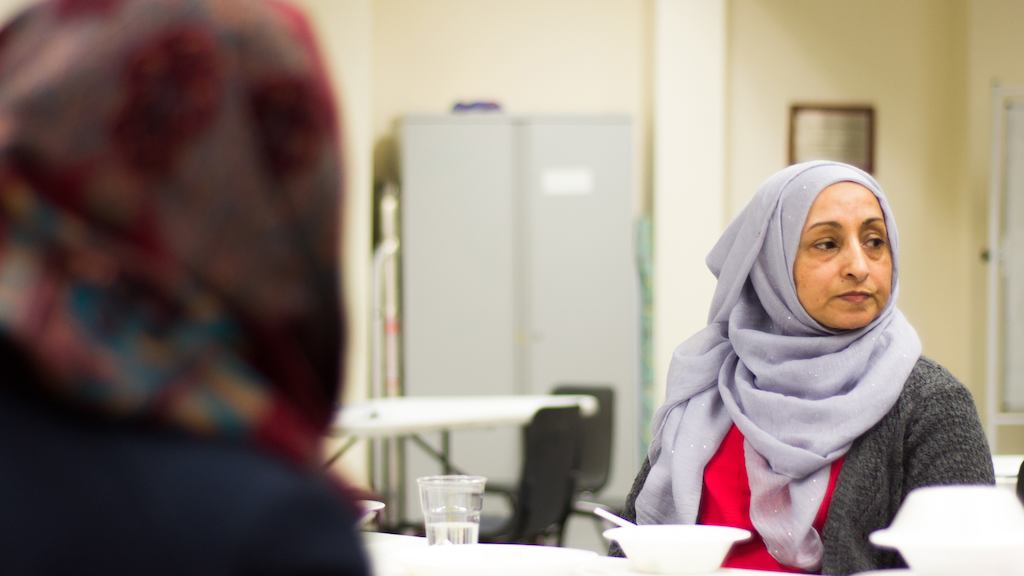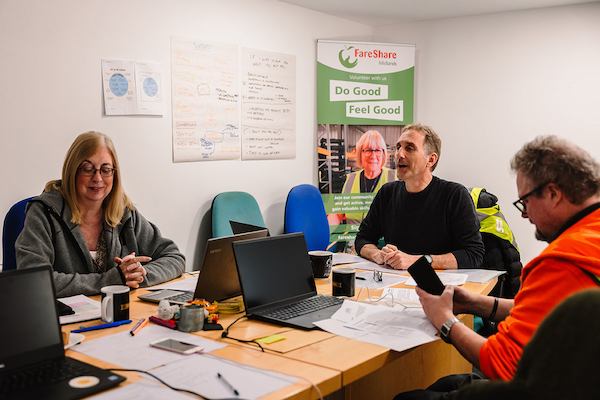Radical change needed to tackle ‘unemployment trap’ leaving over a million over 50s out of work

Our new report calls for a radical rethink to tackle chronic worklessness experienced by the over 50s, with data showing this age group experience an ‘unemployment trap’.
The report shows that people aged over 50 face a complex range of challenges in returning to work
A new report published today (Tuesday, 14 November) calls for a radical rethink to tackle chronic worklessness experienced by the over 50s, with data showing this age group experience an ‘unemployment trap’ – they are more likely to be out of work than younger age groups, and once unemployed they struggle more than younger jobseekers to get back into employment.
Currently, almost a third of 50-64 year olds in the UK are not in work – some 3.6 million people. Within this, 27% are recorded as ‘economically inactive’ – not engaged in the labour market in any way – which is more than twice the rate of those aged 35-49 (13%). It is estimated that around 1 million of the over 50s who are out of work left employment involuntarily due to issues such as ill health, caring responsibilities or redundancy.
Once out of work, people aged over 50 struggle to get back into the labour market more than younger age groups. Some 38% of unemployed over 50s have been out of work for over a year, compared to 19% of 18-24 year olds.
We believe that employment support is failing this age group. Only 16% of over 50s referred to the Government’s Work Programme are successfully supported into a job – the worst results of any group, irrespective of gender, ethnicity or disability.
The impending rise of the state pension age means that, without urgent action, the problem will get dramatically worse. The millions of over 50s already out of work will have to wait longer until they can receive their state pension – for those aged 56 or below, at least two years longer – at a time when they are unable to secure an income for themselves.

Addressing worklessness and job insecurity amongst people aged 50 and over in Greater Manchester
Jemma Mouland, Senior Programme Manager at the Centre for Ageing Better, said:
“Too many older workers are currently being pushed out of the workforce because of poor health, caring responsibilities or redundancy. Once they have lost their job, over 50s struggle much more than any other age group to get back to work, which is costly personally and financially for them, with impacts lasting well into later life. Given that we are all working for longer and our workforce is ageing, we need urgent action to break this vicious circle.
“Our research finds that changes are needed at every level. It is not a problem that national government or employment and skills services alone can fix. Poor health and caring responsibilities are some of the most common barriers experienced by older workers, so it is important that health and benefits systems are more joined up and focused on helping those over 50 stay in work, or get back into employment. Employers too need to value their older workers more, offer them greater support and flexibility and stamp out ageist employment practices.”
Today’s report is based on work with people aged over 50 in Greater Manchester and draws on six months’ research by the Centre for Local Economic Strategies (CLES) – in partnership with the Learning & Work Institute – in five areas of the city region. In Greater Manchester almost one in three people aged 50 and over are out of work – an employment rate consistently below the national average. Nearly half of people aged 50-64 in the city region (46%) are either out of work or in low-paid work.
It was undertaken as part of the Centre for Ageing Better’s five-year partnership with Greater Manchester Combined Authority to tackle social, economic and health inequalities in later life. These insights are feeding into the work of the Combined Authority’s Ageing Hub, put together to respond the challenges and opportunities of an ageing population.
The report shows that people aged over 50 face a complex range of challenges in returning to work. These include poor health and long-term conditions, caring responsibilities, a lack of suitable and accessible employment opportunities and perceived age bias, such as recruitment processes favouring younger candidates, or being passed over for training opportunities. They were also found to experience internalised ageism, where they felt their age meant some job opportunities were out of reach, or their lack of success in getting a job after a long period meant they gave up trying – in some cases even 15 years before they were due to receive their state pension.
It highlights that Government, local authorities and employers need to do more to address the many barriers people aged over 50 face in returning to work. This means coordinated efforts by employment support and training providers, health services, the benefits system, local government and employers to ensure that individuals are able to get the full range of support they need in a timely way. Support must be tailored to an individual’s own circumstances and respond to the particular barriers that they experience in their local area, which could range from poor transport links to a lack of suitable jobs available.
The research highlights three key areas where progress can be made:
- National government: increased flexibility in the benefits system and rethinking services to reflect the complex challenges that over 50s face in returning to work
- Local authorities: integrating employment, skills and health support offered to older job seekers from statutory and community services and ensuring it is tailored to their personal circumstances
- Employers: offering flexible job opportunities and taking a positive approach to recruiting older workers.
Jean Stretton, Greater Manchester’s lead for Equality, Fairness and Inclusion, said:
“We must make the most of the talent and expertise of older workers if we are to tackle poverty in later life and keep our economy growing. In Greater Manchester we’re exploring how we can make employment more age-friendly in order to help older people stay in work for as long as they want or need.”
Sean Anstee, Greater Manchester’s lead for Skills and Employment, said:
“The research confirms that much more needs to be done to improve the health, well-being and prosperity of older people in Greater Manchester, particularly in terms of skills and employment.
“We’ve shown through the devolution of DWP budgets that real improvements can be made to outcomes for local people, as demonstrated through Working Well. However, this report shows that more can and needs to be done and we are committed to working with the Centre for Ageing Better and the Ageing Hub to deliver that positive change.”
Jenny Rouse, Associate Director at Centre for Local Economic Strategies (CLES) and Lead researcher on the report, said:
“If we are to have effective public services for the benefit of everyone
everywhere, we must ensure that what we offer reflects the needs of over 50s who are in insecure work or experiencing worklessness. Our research shows that we must listen and understand the experiences of this age group on a deeper level and recognise the unique challenges they face, but also the unique and valuable contributions they can make to their community and Greater Manchester as a whole.”
